
Expert Panel Discussion and Q&A - July 22, 2022
-
Register
- Non-Member - $39
- Regular Member - $29
- Retired - $29
- Early Career Physician - $29
- Resident - $19
- Student - $19
- Associate - $19
- ASAM Staff - Free!
- International Member - $29
- Emeritus Member - $29
- Provisional Member - $29
- Fellow Member - $29
- Honorary Member - $29
- CRT Member - $29
Expert Panel Discussion and Q&A - July 22, 2022
Recorded: Friday, July 22, 2022 - Sunday, July 24, 2022
On-Demand Session
Overview
This 60-minute, on-demand session from the ASAM 2022 Review Course provides answers to the top questions asked during Faculty presentations covering a variety of topics from the Neurobiology of Addiction to all other recognized Substance Use Disorders and Behavioral Addictions.
This panel session is the prime opportunity for learners to get their questions answered on topics that were presented on the first day of the ASAM Review Course. Session Topics Being Discussed: -Neurobiology of Addiction: Key Concepts and Model -Alcohol Use Disorder: From Neurobiology to Treatment -Sedative Use Disorder: Key Concepts for Treatment -Opioid Use Disorder: Science, History, and Clinical Implications -Tobacco Use Disorder: Trends and Treatment -Cannabis Use Disorder: Science, Trends and Clinical Implications -Stimulant Use Disorder: Trends and Treatment -Other Classes of Drugs: Pharmacology and Epidemiology
The target audience for this introductory and intermediate level activity includes: Physicians preparing for the ABPM or AOA Board Certification Examination in addiction medicine, nurse practitioners, physician assistants, other clinicians, researchers, residents, fellows, students, and counselors.
This activity addresses the following ACGME Competencies: Patient Care, Medical Knowledge, Practice-Based Learning and Improvement
Learning Objectives
Upon completion, learners will be able to:
- Demonstrate practical knowledge on the neurobiology of addiction and articulate its activity in terms useful in a clinical setting
- Describe the effects of alcohol, tobacco and other drugs in both tolerant and non-tolerant individuals
- Describe the process for diagnosing addiction and differentiating the symptoms of addiction from those of other medical or psychiatric disorders
- Explain the various pharmacologic and psychosocial treatments for addictive disorders and describe the factors that should be considered in selecting a treatment modality to match the needs of a specific patient
- Describe the precipitants of relapse and current evidence-based practices to prevent and manage relapse
Registration Rates
| ASAM Learner Type | Rate |
| ASAM Member | $29 |
| Non-Member | $39 |
| Associate Member | $19 |
| Resident Member* | $19 |
| Student Member* | $19 |
*Residents, Fellows-in-training, Interns, and Students must join ASAM to receive a discounted registration rate. Click here to become an ASAM member. National and Chapter membership dues apply. There is no charge for Students to become a Member, but verification of student status is required.
Membership Question? Call ASAM at 1.301.656.3920, email us, or view the ASAM website for more information.
Refunds & Cancellations
All ASAM eLearning Center refund requests must be made in writing to Education@ASAM.org within 90 days of purchase. Those requesting refunds for courses that are in progress will receive partial refunds or eLearning Center credit. Automatic full refunds will be made for any course with a live-course component that has been cancelled.
Registration Deadline: 08/15/2025
Instructions
- Click on the Contents tab to begin this activity.
- Click Complete Post Test to answer multiple choice questions. Participants will have 10 attempts to pass and must answer 2 out of 3 questions correctly.
- Click Complete Evaluation to provide valuable activity feedback. Scroll down on all questions as there may be answer options that expand past the size of the window.
- Click the button Claim Medical Credits in the box titled Claim Credits & Certificate. Choose the type of credit and click submit. Click the button View/Print Certificate to save or print your certificate. You can view/print your certificate at any time by visiting the ASAM e-Learning Center, clicking Dashboard, and clicking Transcript/Achievements.
Need Assistance?
For assistance logging in, accessing activities, claiming credit, or for other questions or concerns, please check the FAQ page or e-mail Education@ASAM.org
ASAM is proud to offer eSSENTIAL Accessibility to ensure our website is accessible and functional for all our learners while providing free assistive technology for people with the widest possible range of abilities.
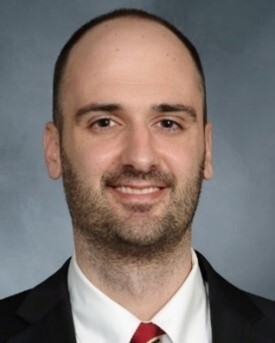
Jonathan Avery (Moderator)
MD
Jonathan Avery, MD is currently the Director of Addiction Psychiatry and an Associate Professor of Clinical Psychiatry at Weill Cornell Medical College and New York-Presbyterian Hospital. In addition to his clinical work, Dr. Avery teaches addiction psychiatry to the Weill Cornell medical students and residents of New York-Presbyterian Hospital. He has been published on a broad variety of topics in psychiatry, including papers on subjects ranging from clinician attitudes towards patients to how to use buprenorphine. He is the founder of the Addiction Stigma Institute that studies stigma towards individuals with substance use disorders and creates novel interventions to improve these stigmatizing attitudes. He was on the editorial board for the DSM-5 Clinical Cases book and is the editor of the books Co-occurring Mental Illness and Substance Use Disorders: A Guide to Diagnosis and Treatment and The Stigma of Addiction: An Essential Guide. He has won numerous awards for his clinical and academic work, including the American Board of Psychiatry and Neurology Faculty Innovation in Education Award and the Outstanding Faculty Member Award from the New York County Psychiatric Society.
No Relevant Financial Disclosures
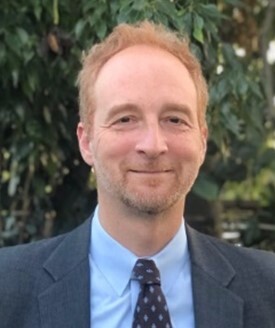
Ricardo Restrepo
MD, MPH
Ricardo Restrepo, MD, MPH finished his medical school in Medellín, Colombia. He then did his residency training in Psychiatry at Boston University Medical Center where he completed a fellowship in Addiction Psychiatry. He received an MPH in Global Public Health from NYU in 2008, while working at St Luke’s/Roosevelt Hospital, where he was Director of the Addiction Psychopharmacology Clinic at the Addiction Institute of New York.
Since 2012, he works at the Long Beach VA Hospital, where he is the Medical Director of the SATP/Buprenorphine Clinic. Ricardo holds an academic position as Associate Clinical Professor of Psychiatry at the University of California (Irvine and Riverside) School of Medicine and most recently at the Charles Drew University, Los Angeles. He teaches and supervises students, psychiatry, family medicine and internal medicine residents. He serves as committee member of the American Academy of Addiction Medicine (AAAP) as well as on the California Society of Addiction Medicine (CSAM) Conference planning committee.
Ricardo's academic interests include the psychotherapy and psychopharmacology of addiction and the teaching of Psychiatry and Addiction Medicine. He is actively involved in issues related to transcultural psychiatry and behavioral addictions. He has worked with immigrant populations in the United States for over 20 years. As a volunteer for Physicians for Human Rights (PHR), he has participated in projects in the United States, Latin America and the Middle East. He has served as a United Nations Consultant since 2005.
Dr. Restrepo has written chapters on addiction and human rights textbooks. He is the co-author of textbooks on buprenorphine as well as women’s health and addiction, and he cooperated with the Translation of DSM-5 to Spanish. He is board re-certified in Psychiatry and Addiction Psychiatry and a professional musician.
No Relevant Financial Disclosures
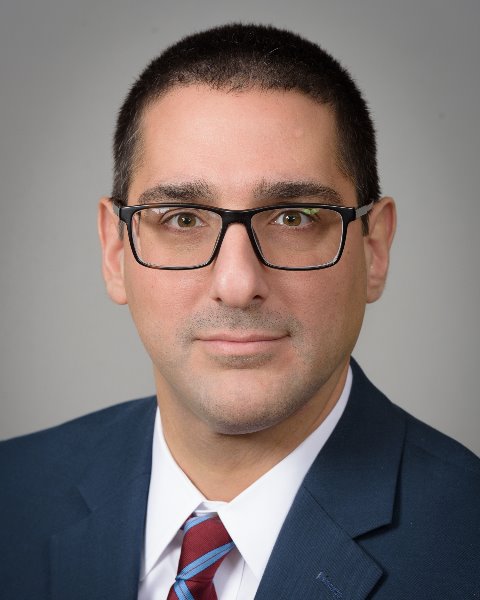
Soteri Polydorou
MD
Soteri Polydorou, MD is a practicing physician with board certifications in Addiction Medicine and Internal Medicine. His involvement in the field of substance use disorder (SUD) treatment and education include serving as Medical Director of Addiction Services for Northwell Health and Associate Professor at the Zucker School of Medicine at Hofstra/Northwell. Northwell Health is a regional health system of over 20 hospitals and nearly 800 outpatient facilities. Dr. Polydorou is a member of various governmental and professional committees tasked with supporting the delivery and organization of addiction treatment. Dr. Polydorou’s interests include public policy initiatives to address substance use disorders, optimizing access to SUD services within health systems, and implementation of innovative opioid use disorder treatments within various healthcare clinical settings.
No Relevant Financial Disclosures
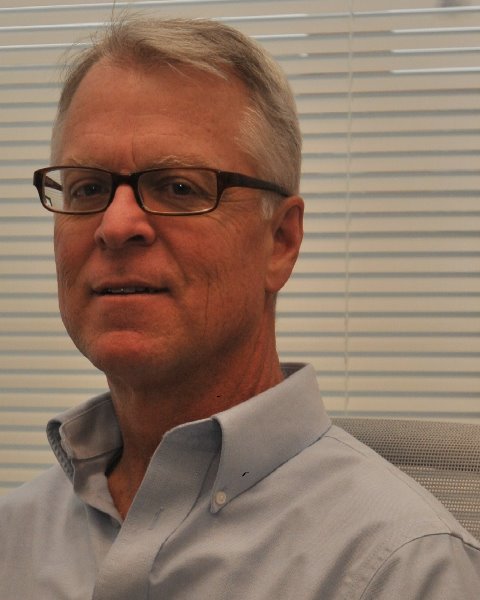
Michael H. Baumann
PhD
Michael H. Baumann, PhD is a Staff Scientist and Chief of the Designer Drug Research Unit (DDRU), at the Intramural Research Program (IRP) of the National Institute on Drug Abuse (NIDA) in Baltimore, Maryland. The DDRU collects, analyzes and disseminates the most up-to-date information about the pharmacology and toxicology of newly-emerging synthetic drugs of abuse (i.e., designer drugs), more formally known as new psychoactive substances (NPS). Working with partner organizations such as the Drug Enforcement Administration (DEA) and the National Drug Early Warning System (NDEWS), Dr. Baumann is kept informed about trends in the misuse of NPS. The DDRU has characterized the molecular mechanism of action and pharmacological effects for a diversity of NPS, including “bath salts” (synthetic stimulants), “spice” (synthetic cannabinoids) and synthetic opioids. Findings from the DDRU inform law enforcement personnel, health care workers, clinical toxicologists, forensic scientists, basic researchers, and policymakers who are involved in responding to the global spread of NPS and the associated public health risks.
No Relevant Financial Disclosures
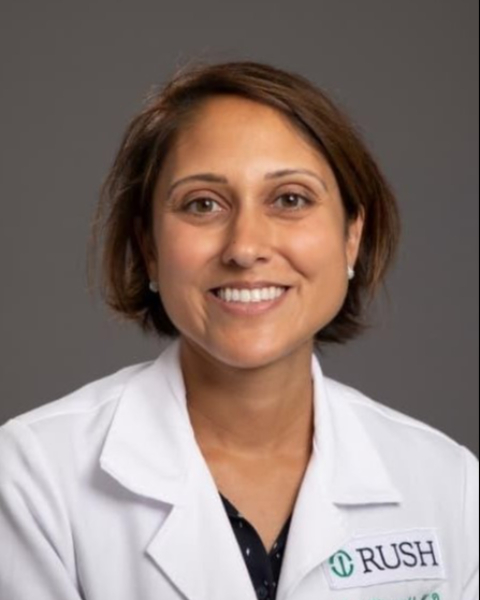
Ruchi Fitzgerald, MD FAAFP
Assistant Professor, Associate Program Director of Addiction Medicine FellowshipService Chief, Addiction Medicine Consult Service
Rush University/PCC Community Wellness
Ruchi M. Fitzgerald, MD, FAAFP is a family physician and an addiction medicine physician. She is the Service Chief of Inpatient Addiction Medicine at PCC Community Wellness, a federally qualified health center system that serves the West Side of Chicago. Dr. Fitzgerald is an Assistant Professor in the Departments of Family Medicine and Psychiatry and Behavioral Sciences at Rush University, as well as the Associate Program Director of the Rush Addiction Medicine Fellowship. She completed the addiction medicine fellowship at Rush University in 2020. She is a graduate of the University of Michigan Medical School and completed her family medicine residency in 2012 with the Montana Family Medicine Residency. Dr. Fitzgerald developed an interest in provision of care for underserved populations and those affected by substance use disorders during her residency. Dr. Fitzgerald also has extensive experience in telemedicine. During her fellowship, Dr. Fitzgerald worked with the addiction medicine faculty to create RISE-MD (Rush Integrative Substance Use Disorder Education for Medical Doctors), an educational initiative in Rush Medical College that focuses on eliminating stigma while promoting evidence-based treatment of substance use disorders in the next generation of physicians. She has worked with the American Society of Addiction Medicine and the Illinois Society of Addiction Medicine on key advocacy and policy initiatives related to substance use disorders. Dr. Fitzgerald is also an active member of the Federation of State Physician Health Programs and is an advocate for physician health and wellness.
No Relevant Financial Disclosures
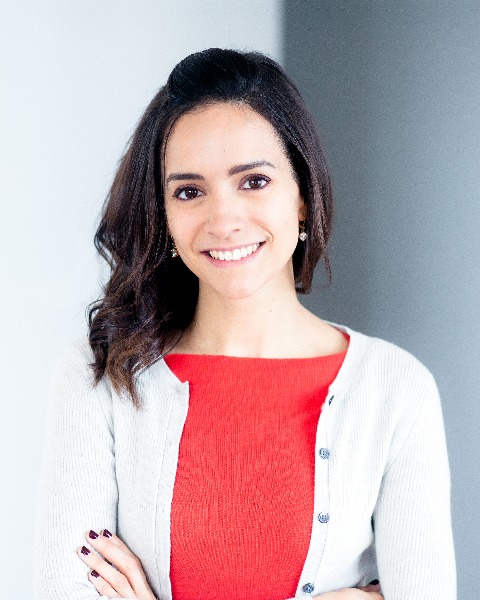
Annie Levesque
MD, MSc, FASAM
Annie Levesque, MD, MSc, FASAM is the Medical Director of the Opioid Treatment Program at the Addiction Institute at Mount Sinai West. She is also the Associate Director of the Fellowship in Addiction Medicine Program at the Icahn School of Medicine at Mount Sinai. After receiving her medical degree from the University of Montreal, Dr. Levesque completed a Family Medicine and a Clinician-Scholar residency program at the University of Montreal, an Addiction Medicine fellowship at Mount Sinai West Hospital and a Masters in Experimental Medicine at McGill University
No Relevant Financial Disclosures

CME, CE, CEU and Other Credit Types
ACCME Accreditation Statement
The American Society of Addiction Medicine is accredited by the Accreditation Council for Continuing Medical Education (ACCME) to provide continuing medical education for physicians.
AMA Credit Designation Statement
The American Society of Addiction Medicine designates this enduring material for a maximum of 1 AMA PRA Category 1 Credits™. Physicians should claim only the credit commensurate with the extent of their participation in the activity.
NAADAC, the Association for Addiction Professionals
This activity has been approved by the American Society of Addiction Medicine, as a NAADAC Approved Education Provider, for educational credits. NAADAC Provider #295, ASAM is responsible for all aspects of the programming.
California Association for Drug/Alcohol Educators (CAADE)
This educational program is approved by CAADE: #CP40 999 1222
California Association of DUI Treatment Centers (CADTP)
This educational program is approved by CADTP: #205
California Consortium of Addiction Programs and Professionals (CCAPP)
This educational program is approved by CCAPP: #OS-20-330-1222
Continuing Education Credits (CEUs)
Non-physician participants will receive a certificate of attendance upon completion of the activity and an online evaluation confirming their participation. Participants should submit his/her certificate of attendance to their professional organization/institute.
Maintenance of Certification
The American Board of Medical Specialties (ABMS)
Through the American Board of Medical Specialties (“ABMS”) ongoing commitment to increase access to practice relevant Continuing Certification Activities through the ABMS Continuing Certification Directory ASAM Review Course in Addiction Medicine has met the requirements as a MOC Part II CME Activity (apply toward general CME requirement) for the following ABMS Member Boards: Allergy and Immunology, Anesthesiology, Family Medicine, Physical Medicine and Rehabilitation, Psychiatry and Neurology, Preventive Medicine, Radiology.
American Board of Preventive Medicine (ABPM)
The American Board of Preventive Medicine (ABPM) has approved this activity for a maximum of 1 LLSA credit towards ABPM MOC Part II requirements.
American Board of Anesthesiology (ABA)
This activity contributes to the CME component of the American Board of Anesthesiology’s redesigned Maintenance of Certification in Anesthesiology TM (MOCA®) program, known as MOCA 2.0®.
American Board of Pediatrics (ABP)
Successful completion of this CME activity, which includes participation in the activity, with individual assessments of the participant and feedback to the participant, enables the participant to earn a maximum of 1 MOC points in the American Board of Pediatrics’ (ABP) Maintenance of Certification (MOC) program. It is the CME activity provider’s responsibility to submit participant completion information to ACCME for the purpose of granting ABP MOC credit.
American Board of Internal Medicine (ABIM)
Successful completion of this CME activity, which includes participation in the evaluation component, enables the participant to earn up to 1 Medical Knowledge MOC point in the American Board of Internal Medicine’s (ABIM) Maintenance of Certification (MOC) program. Participants will earn MOC points equivalent to the amount of CME credits claimed for the activity. It is the CME activity provider’s responsibility to submit participant completion information to ACCME for the purpose of granting ABIM MOC credits.
American Board of Surgery (ABS)
Successful completion of this CME activity, which includes participation in the evaluation component, enables the learner to earn credit toward the CME and/or Self-Assessment requirements of the American Board of Surgery’s Continuous Certification program. It is the CME activity provider's responsibility to submit learner completion information to ACCME for the purpose of granting ABS credit
American Board of Psychiatry and Neurology (ABPN)
Successful completion of this CME activity can be used to satisfy the American Board of Psychiatry and Neurology’s (ABPN) CME requirement for Maintenance of Certification program.
Royal College of Physicians and Surgeons of Canada (RCPSC)
Royal College Fellows can use participation in Accredited Continuing Medical Education to earn Section 3 Credits
American Board of Addiction Medicine (ABAM)
Successful completion of this activity can be used to satisfy the American Board of Addiction Medicine (ABAM) for Tmoc as credits towards ABAM LLSA Part II requirements.
Disclosure Information
In accordance with disclosure policies of ASAM and the ACCME, the effort is made to ensure balance, independence, objectivity, and scientific rigor in all CME activities. These policies include mitigating all possible relevant financial relationships with ineligible companies for the Planning Committees and Presenters. All activity Planning Committee member and Presenters have disclosed relevant financial relationship information. The ASAM CME Committee has reviewed these disclosures and determined that the relationships are not inappropriate in the context of their respective presentations and are not inconsistent with the educational goals and integrity of the activity.

